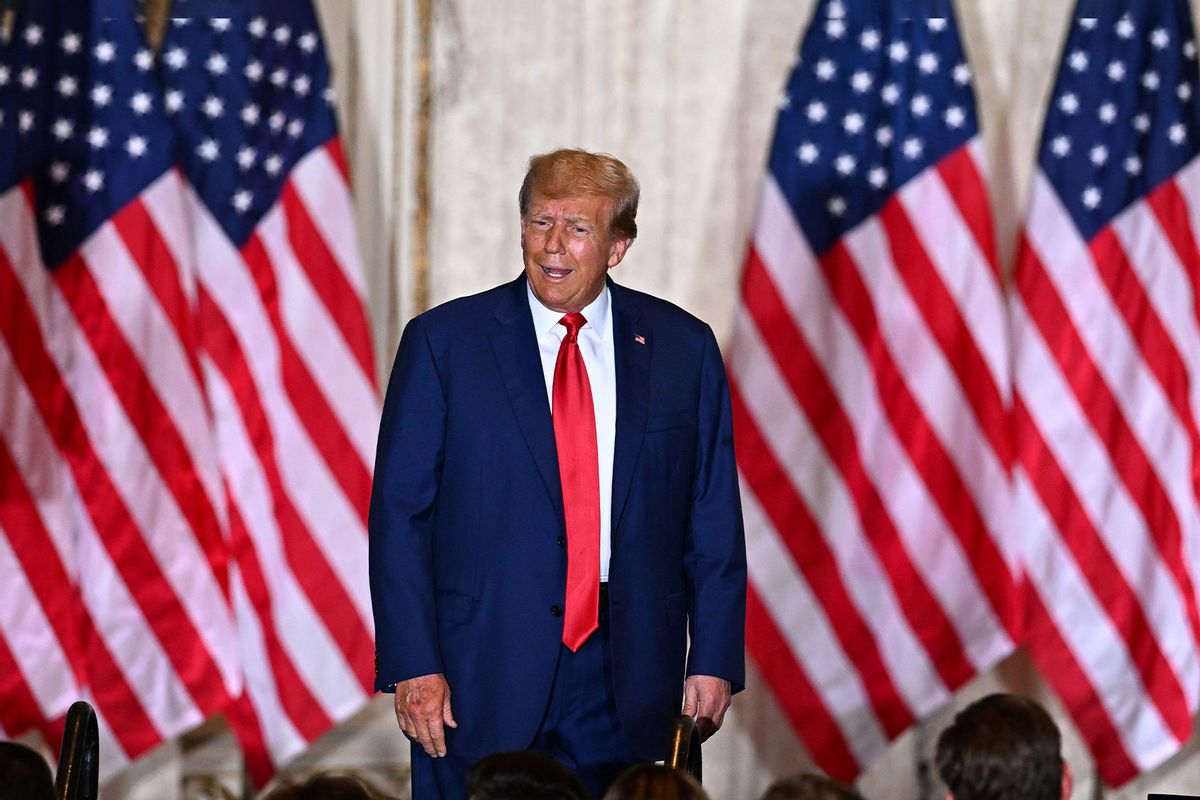The Department of Justice will ask a U.S. appeals court to block former President Donald Trump from being questioned on May 24 by attorneys representing two former FBI employees who have alleged they were retaliated against after the bureau's investigation into Russian interference in the 2016 presidential election.
According to The Washington Post, the department decided it would make the request on Thursday, disclosing the decision in a court filing where department lawyers said that U.S. Solicitor General Elizabeth Prelogar approved an appeal that day unless U.S. District Judge Amy Berman Jackson reviews her decision. Jackson chose to allow attorneys for former senior FBI agent Peter Strzok and former FBI lawyer Lisa Page to depose Trump and FBI director Christopher Wray on Feb. 23.
The two former FBI employees reportedly exchanged text messages criticizing the former president while they were having an affair, expressing their dislike of Trump and concerns that he would win the 2016 election.
Strzok claims that he was unfairly terminated and seeks reinstatement to his former role as well as back pay. Page alleges that officials unlawfully distributed her and Strzok's messages to reporters. In their suits, they both want to know if Trump pushed the Justice Department and the FBI to fire them out of retribution.
However, the department argued that Trump cannot be deposed before Wray, citing the principle that litigants must first interview lower-ranking officials and seek all other possible sources of information before turning to officials of a higher rank.
"As the Court itself acknowledged, Director Wray's testimony could obviate the need for any deposition of former president Trump," Justice Department attorney Christopher Lynch wrote in the filing.
Lynch also asked Judge Jackson to decide by next Tuesday so the department could request a writ of mandamus from the U.S. Court of Appeals, allowing the D.C. circuit to override the judge's decision if she does not require Wray to be deposed first.
Thursday's decision is the latest edition in the four-year-old story of Strzok and Page's lawsuits. In March, the Justice Department and the Biden administration said they would not employ executive privilege to bar Wray's testimony, citing the Constitution's separation of powers, and the department told the judge that Trump did not request that action.
Strzok, who previously worked on the FBI investigation into 2016 Democratic presidential nominee Hillary Clinton's use of a private email server, was involved in the investigation into whether Trump coordinated with Russia to affect the 2016 election.
During the probe, Strzok and Page messaged each other critiques of various politicians -- namely Trump -- on work phones, including an August 2016 exchange in which Strzok responded "No. No he's not. We'll stop it," to Page's question seeking assurance that Trump would never become president.
When the messages were discovered, the Justice Department found that they revealed a willingness to impede Trump's prospects, resulting in Strzok's removal from the Russia investigation and, later, his firing in August 2018.
Want a daily wrap-up of all the news and commentary Salon has to offer? Subscribe to our morning newsletter, Crash Course.
In addition to criticizing Trump, Strzok and Page's messages reportedly incited claims that the FBI was biased against the former president since their public release in 2017. Trump and his base fired back as a result, leading to an array of public statements and angry tweets targeting the former FBI employees, former FBI director James Comey and his deputy, Andrew McCabe.
In his lawsuit, Strzok argued that Trump's administration only allowed partisan political speech from employees if it praised the former president and slammed his opponents, and claimed that Trump orchestrated his removal as "part of a broader campaign against the very principle of free speech."
The Justice Department's most recent move comes amidst the storm of Trump's legal troubles, regarding both the 2016 and 2020 presidential elections and other matters. On Tuesday he was found liable by a Manhattan jury for sexually abusing and defaming writer E. Jean Carroll, who was awarded $5 million in damages.
He also faces an indictment accusing him of making hush money payments during his 2016 campaign alongside U.S. Special Counsel investigations into efforts to prevent the peaceful transfer of power following the 2020 election and his handling of classified documents.
Read more
about Peter Strzok and Lisa Page



Shares